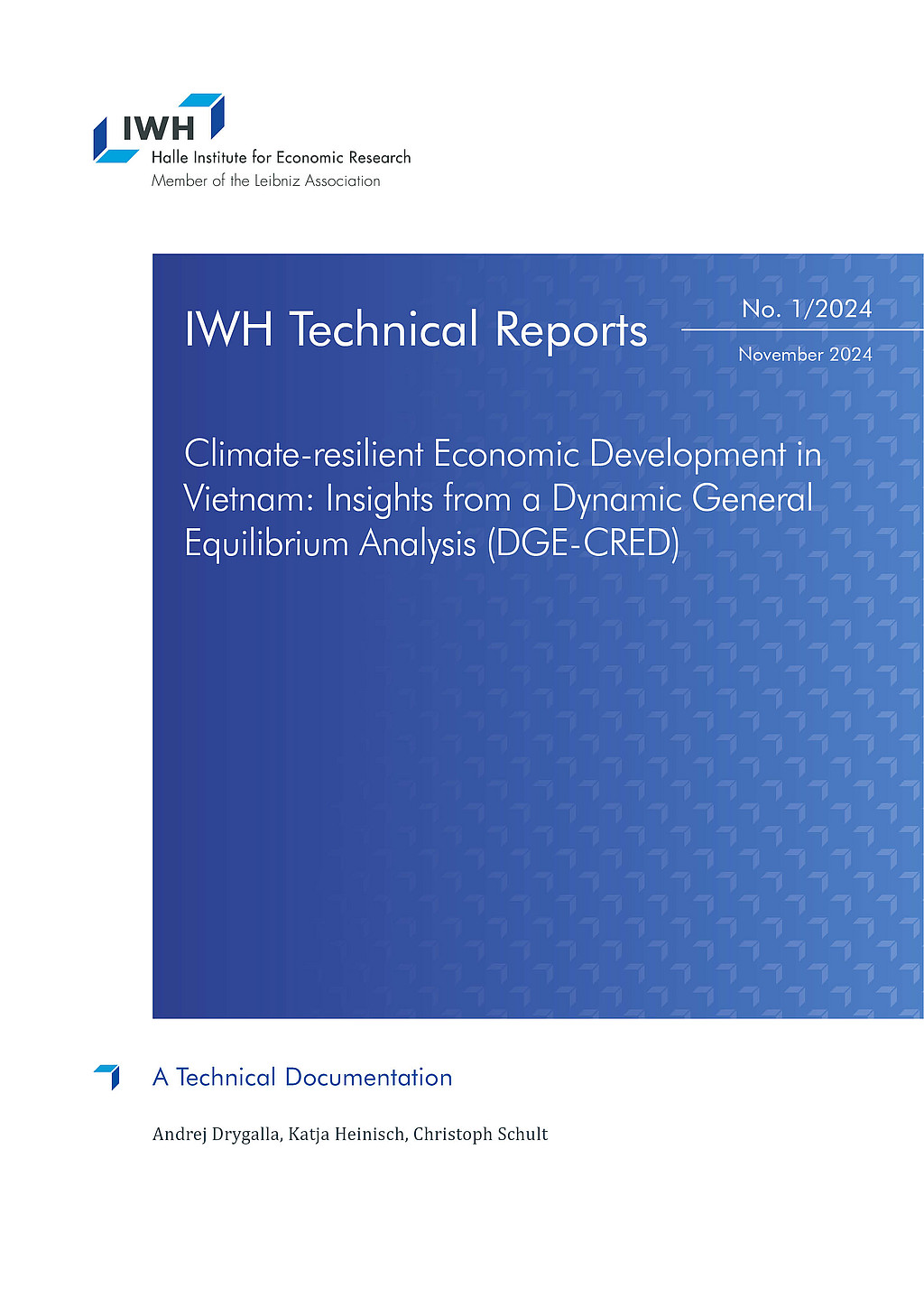
Climate-resilient Economic Development in Vietnam: Insights from a Dynamic General Equilibrium Analysis (DGE-CRED)
In a multi-sector and multi-region framework, this paper employs a dynamic general equilibrium model to analyze climate-resilient economic development (DGE-CRED) in Vietnam. We calibrate sector and region-specific damage functions and quantify climate variable impacts on productivity and capital formation for various shared socioeconomic pathways (SSPs 119, 245, and 585). Our results based on simulations and cost-benefit analyses reveal a projected 5 percent reduction in annual GDP by 2050 in the SSP 245 scenario. Adaptation measures for the dyke system are crucial to mitigate the consumption gap, but they alone cannot sufficiently address it. Climate-induced damages to agriculture and labor productivity are the primary drivers of consumption reductions, underscoring the need for focused adaptation measures in the agricultural sector and strategies to reduce labor intensity as vital policy considerations for Vietnam’s response to climate change.





